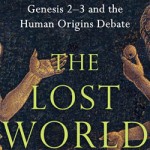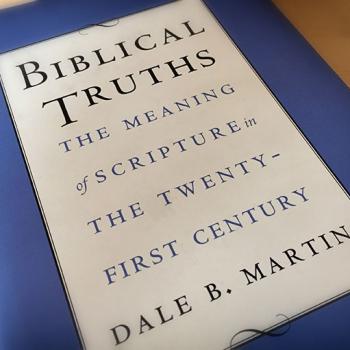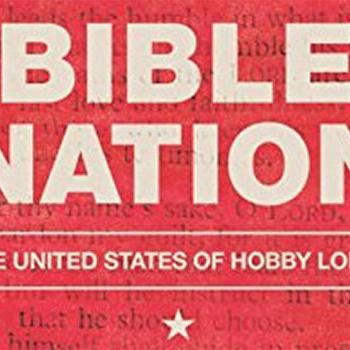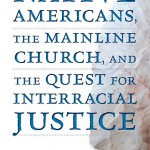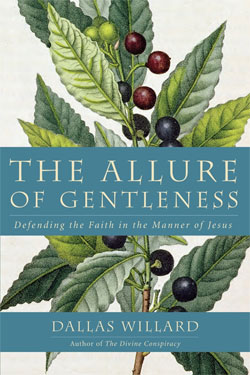 “Apologetics itself has become a problem. It has become a problem in both its content and its spirit.” So says the late Dallas Willard in a new book about apologetics, The Allure of Gentleness: Defending the Faith in the Manner of Jesus, (HarperOne, $26.99).
“Apologetics itself has become a problem. It has become a problem in both its content and its spirit.” So says the late Dallas Willard in a new book about apologetics, The Allure of Gentleness: Defending the Faith in the Manner of Jesus, (HarperOne, $26.99).
In a series of talks that were compiled and edited by Willard’s daughter Rebecca Willard Heatley, Willard argues for an approach to Christian apologetics that isn’t solely based on argument, evidence and reason, but also is characterized by gentleness.
He seeks to temper the often combative and acerbic nature of apologetic discourse with a humble, generous, open and loving approach, wisely realizing that apologetic arguments “will all be wasted unless the allure of gentleness pervades all that we do.”
Willard covers much of the usual apologetic ground, discussing knowledge, truth, reason, faith, doubt, God’s existence, divine hiddenness, hell, cosmology and the problems of pain and evil. But, though framed by a good intent, Willard’s arguments are often cut from the same well-worn cloth of most modern evangelical apologetics.
Despite setting out to correct Christian apologetic’s problems of content and spirit, Willard’s approach often perpetuates them. For example, while discussing Christian ethics, Willard says that
Richard Robinson was one of the leading atheist philosophers during the latter part of the twentieth century. He died in 1996, and he knows better now … [emphasis added]
The idea that Robinson “knows better now” was probably intended as merely a humorous interjection, but it’s precisely that sort of thoughtless smugness which pervades so much of Christian apologetics. Willard speaks of having confidence in the Christian faith, but an off-handed diminishment of a deceased interlocutor goes beyond confidence into the realm of arrogance. Alluring gentleness this is not.
Later in the book, Willard argues for the reliably of the Bible, saying that “as God gave the scriptures, in their original form, they were absolutely perfect.” He acknowledges the circular nature of arguing for biblical reliability based on what it says about itself, instead saying that “the Bible, taken merely by the recognized standards of historiography, is demonstrably a reliable historical record,” so that Christians can say that “we know the Bible is true, because the standard canon of historiography authenticated it.”
Such an argument is either naïve or disingenuous. All but the most ardent fundamentalists will readily admit that there are numerous historical challenges to the biblical account. At best, we can’t verify the historical authenticity of many biblical accounts and at worst, the biblical accounts sometimes get the history completely wrong. But regardless of how one understands the historicity of scripture, it is demonstrably false that “the standard canon of historiography [has] authenticated it.”
If Willard is unable to approach the Bible honestly, if he’s unwilling to acknowledge the real difficulties and doubts that confront the Christian faith, then I question the significance of his entire apologetic undertaking. Gentleness in apologetics is a noble goal, ignorance and obfuscation are not.
I don’t think there’s anything inherently wrong with apologetics. It’s good to seek to understand the reasons for our faith and to be able to explain them to others. Sadly however, apologetics, as practiced by many Christians, including Dallas Willard, continues to be an exercise in easy answers and self-reinforcing arguments.
I wholeheartedly agree with Willard that “apologetics itself has become a problem … in both its content and its spirit.” Unfortunately, those problems persist.
 Dan Wilkinson
Dan Wilkinson
Dan is a writer, graphic designer and IT specialist. He lives in Montana, is married and has two cats. He blogs at CoolingTwilight.com.


